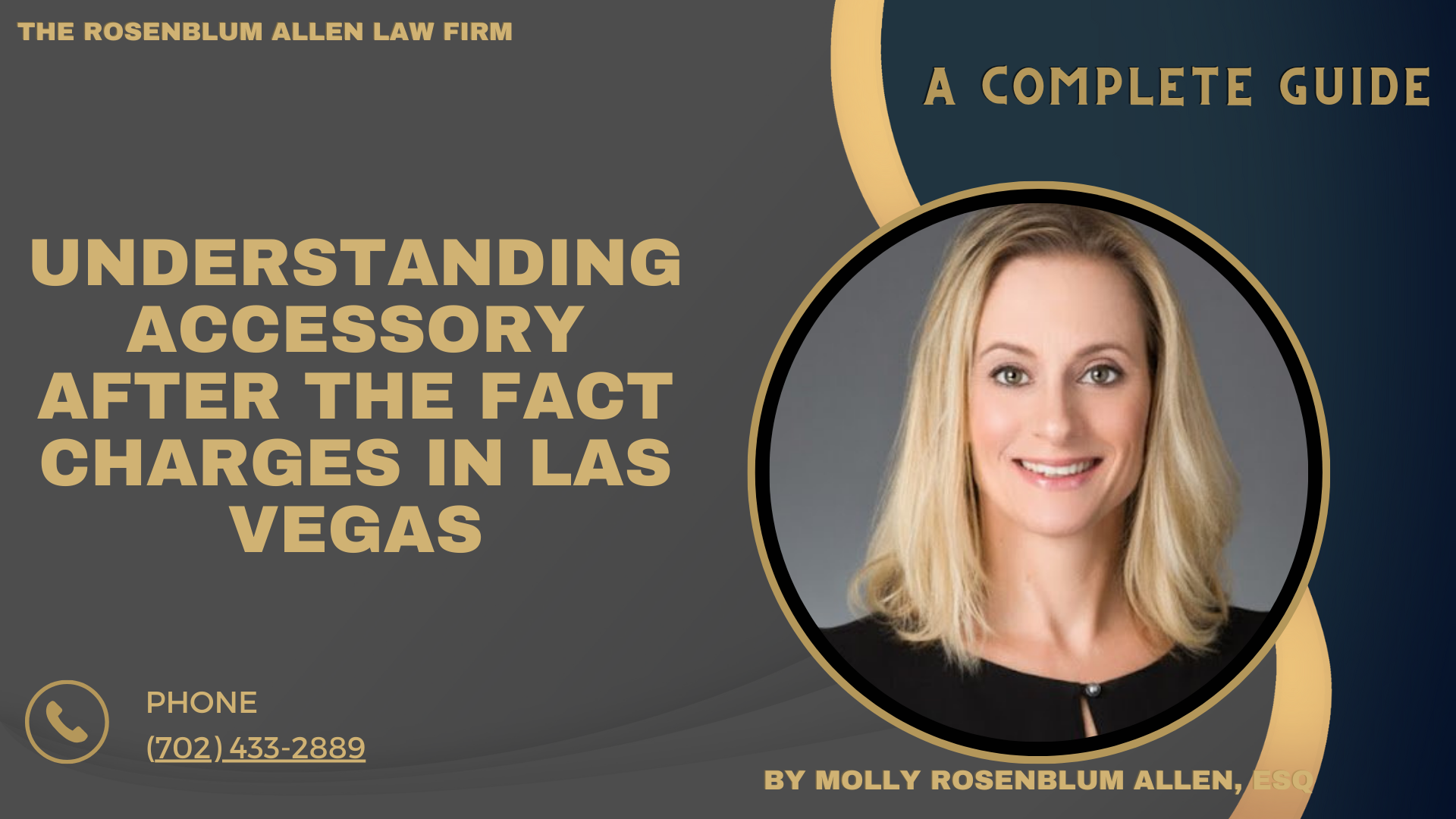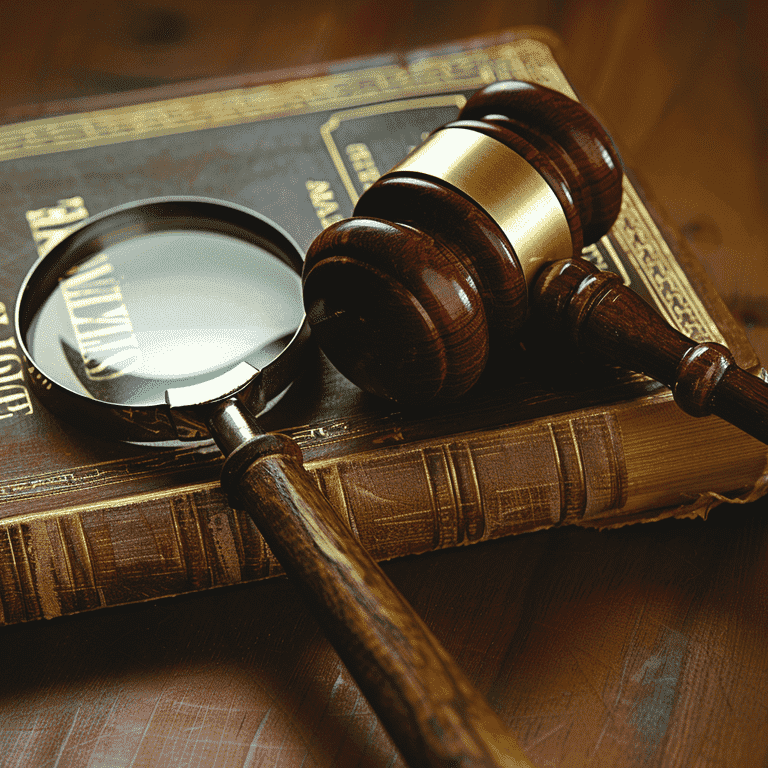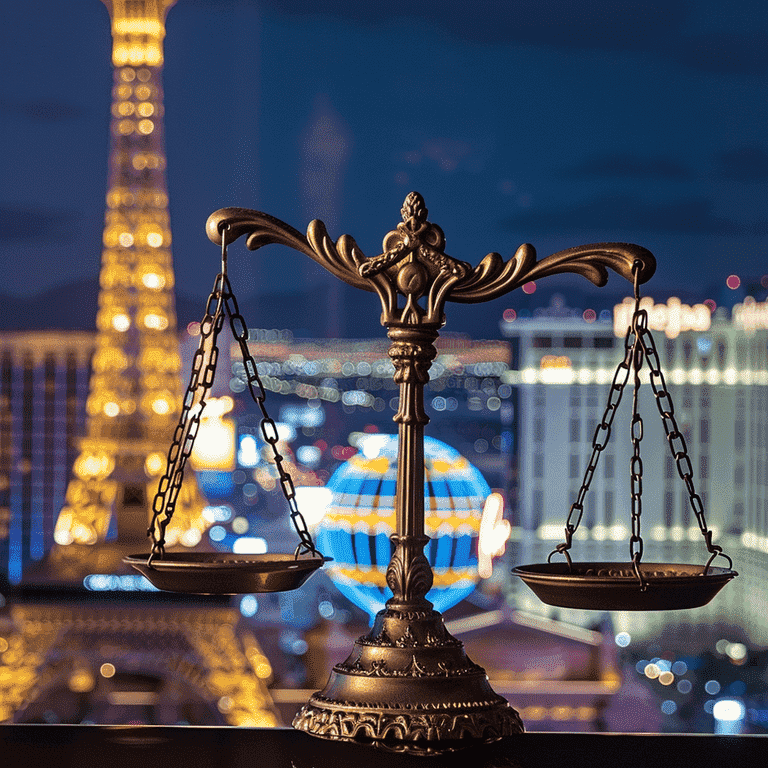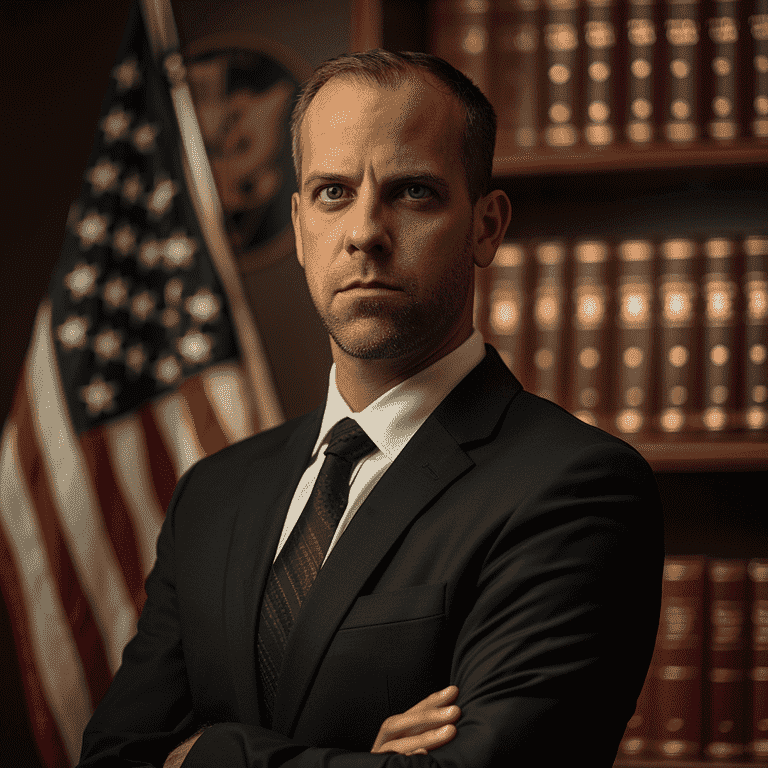Have you ever wondered what happens to people who aren’t directly involved in a crime but who helped the perpetrator after the fact?
In the bustling city of Las Vegas, every action can lead to unexpected consequences.
Understanding the nuances of “accessory after the fact” charges is crucial. This guide aims to shed light on this area of law. It offers clarity to residents and visitors. They might find themselves entangled in the legal system.

Legal Definition of Accessory After the Fact
In the realm of criminal law, not all participants in a crime play the same role. The distinction between primary and secondary parties is significant. “Accessory after the fact” falls into the latter category. Let’s dive deeper:
The distinction between primary and secondary parties in criminal law
Primary Parties: Those who directly engage in the commission of the crime.
Secondary Parties: Individuals who, while not directly involved, play a role before or after the crime.
Specific criteria defining accessory after the fact
An accessory after the fact is someone who:
Knows a crime has been committed.
Intentionally helps the offender avoid arrest or conviction.
Does not necessarily need to have been present at the crime scene.

Nevada Law on Accessory After the Fact
Navigating Nevada’s legal landscape can be like navigating through a maze. The law clearly outlines what constitutes an accessory after the fact. This sets the stage for understanding how these cases are approached.
Statutory framework in Nevada
Nevada statutes specify the actions and intentions that classify someone as an accessory after the fact. The law focuses on the assistance provided to the principal offender. It aims to penalize those who hinder justice.
Comparison with federal laws
Nevada law provides the state’s stance. It’s interesting how it aligns or diverges from federal laws. Both levels of law generally aim to prevent individuals from aiding criminals after a crime. However, definitions and penalties can vary.

Elements of the Crime
To be considered an accessory after the fact in Las Vegas, you must have certain elements present. Understanding these can help individuals grasp the seriousness of such charges. It can also help them understand the importance of legal representation.
Knowledge of the principal crime
The accessory must have actual knowledge that a crime has been committed.
Assistance provided to the principal offender
This can mean offering a hiding place, giving financial support, or disposing of evidence.
Intent behind the assistance
The intent must help the offender evade law enforcement or judicial proceedings. It must be clear.
Each section has been carefully crafted to help you understand accessory after-the-fact charges in Las Vegas. We aim to make this topic accessible to everyone. We’ll do this by breaking down complex legal jargon into easier-to-understand pieces. This includes law enthusiasts, concerned citizens, and people facing charges.

Common Examples in Las Vegas
People know Las Vegas for its vibrant nightlife and bustling streets. It also sees its fair share of legal cases. Authorities label individuals involved in these cases as accessories after the fact. Understanding common scenarios can illuminate the paths that lead to such charges.
Hiding the principal offender: Imagine someone knocking on your door in the middle of the night, seeking refuge. By providing shelter knowingly, you step into the realm of being an accessory after the fact.
Assisting in evading law enforcement: This could be as simple as lending your car to help someone flee town or providing advice on avoiding detection.
Destroying or concealing evidence: Throwing away a weapon or deleting digital evidence can make you complicit.

Penalties and Sentencing in Las Vegas
The consequences for someone found guilty as an accessory after the fact in Las Vegas can vary widely. It depends on the severity of the principal crime and the level of assistance provided. Let’s look at what one might expect:
Range of possible penalties under Nevada law: Penalties can include fines, probation, or imprisonment, reflecting the gravity of the initial crime and the accessory’s role.
Factors influencing sentencing decisions: The court considers several factors, including the accessory’s criminal history, the nature of the assistance provided, and the outcome of the principal crime.

Legal Defenses to Accessory After the Fact Charges
Facing charges as an accessory after the fact can be daunting. But, you can use several defense strategies. Each case is unique. A skilled defense attorney can navigate the nuances to build a compelling case.
Lack of knowledge of the principal offense: Proving that the accused was unaware of the crime can be a powerful defense.
No intent to assist the principal offender: If the assistance was provided without the intent to help the offender evade justice, this could be a viable defense.
Duress or coercion: Demonstrating that the accused was forced into assisting under threat can also be a defense.

The Role of a Defense Attorney
In the complex world of legal battles, having an experienced defense attorney by your side is invaluable. Their role extends far beyond mere representation in court.
Navigating the legal system in Las Vegas: They guide you through the intricacies of local laws and procedures, ensuring you understand every step.
Building a solid defense strategy: Tailoring a defense to the specifics of your case aims to highlight weaknesses in the prosecution’s arguments.
Importance of experienced legal representation: An attorney with a track record in similar cases can make a significant difference in the outcome, offering peace of mind during challenging times.
Why You Have Not Hired a Felony Defense Attorney Yet
Watch this short video to take the next big step toward defending your rights against a felony charge.

Breaking It All Down
It is crucial for anyone navigating the legal system in Las Vegas to understand accessory after the fact charges. This applies to those directly involved or simply seeking knowledge. This guide has explored the legal definitions and everyday scenarios. It has also covered penalties, defenses, and the indispensable role of defense attorneys. Remember, knowledge is power, especially when facing the complexities of the law.

More Frequently Asked Questions
What’s the difference between being charged as an accessory before the fact versus after the fact?
Being charged as an accessory before the fact involves helping plan or prepare a crime, while being an accessory after the fact means assisting the main criminal in avoiding arrest or conviction after the crime. The key difference lies in the timing and nature of the assistance provided.
Can someone face accessory after the fact charges for merely providing moral support to the offender?
Moral support typically doesn’t meet the legal criteria for accessory after the fact charges unless it involves tangible assistance in evading law enforcement or justice. The assistance must materially help the offender avoid legal consequences.
How does the severity of the principal crime affect accessory after the fact charges and penalties?
The severity of the main crime significantly impacts the charges and penalties for an accessory after the fact. The seriousness of the initial crime determines the potential penalties for those who assist after the fact. Generally, more severe initial crimes lead to harsher potential penalties.
Are there specific defenses unique to accessory after the fact charges in Nevada?
Defenses specific to accessory after the fact charges often depend on the details of the assistance provided, the defendant’s knowledge, and intentions. In Nevada, a critical defense might involve arguing lack of actual knowledge of the crime or lack of intent to help the offender evade justice.
How do plea bargains operate in accessory after the fact cases?
Plea bargains in accessory after the fact cases involve negotiating lesser charges or reduced sentences in exchange for the defendant’s cooperation with law enforcement. This cooperation may include providing information about the principal crime or testifying against the main offender.
How does intent play a role in determining guilt for accessory after the fact charges?
Intent is crucial in determining guilt for accessory after the fact charges. The prosecution must prove that the defendant intentionally assisted, had knowledge of the principal crime, and helped the offender evade detection or punishment.
Can family members of a principal offender be charged as accessories after the fact?
Family members can be charged as accessories after the fact if they provide assistance intended to help the offender avoid arrest or conviction. Prosecutors may consider the nature of the relationship and circumstances of the assistance when deciding whether to press charges.
What happens if someone is wrongfully accused of being an accessory after the fact?
If wrongfully accused of being an accessory after the fact, it’s crucial to seek legal representation. A defense attorney can challenge the evidence, argue lack of intent or knowledge, and work toward exoneration.
Is there a statute of limitations for accessory after the fact charges in Nevada?
Yes, there’s a statute of limitations for accessory after the fact charges in Nevada, varying based on the severity of the principal crime. Understanding these time limits is vital for legal strategy and defense.
Can an accessory after the fact charge be expunged from one’s record in Nevada?
Under certain conditions, an accessory after the fact charge may be eligible for expungement in Nevada. Factors such as the severity of the crime, the individual’s criminal history, and the time since the conviction or completion of the sentence influence this eligibility.

Glossary
- Accessory After the Fact: An individual who knowingly assists a perpetrator of a crime after the crime has been committed, intending to help the perpetrator avoid arrest, trial, or conviction.
- Primary Parties: Individuals who are directly involved in committing a crime.
- Secondary Parties: Individuals who are not directly involved in committing a crime but play a role either before or after the crime, such as accessories before or after the fact.
- Statutory Framework: The legal structure provided by written laws that define and regulate specific offenses and procedures.
- Federal Laws: Laws enacted by the national government of a country, applicable across all regions within the country.
- Penalties: The legal consequences or punishments handed down to someone found guilty of a criminal offense.
- Sentencing Decisions: Judgments made by a court regarding the type and severity of punishment imposed on a convicted individual.
- Legal Defenses: Arguments and evidence presented by the defense in a legal proceeding to contest and potentially negate criminal charges against a defendant.
- Duress: Compulsion, force, or pressure exerted upon someone to coerce them into performing actions they would not typically do.
- Coercion: The compelling someone to act involuntarily by using threats, intimidation, or some other form of pressure or force.
- Defense Attorney: A lawyer specializing in the defense of individuals and companies charged with criminal activity.
- Legal Representation: The act of standing for or on behalf of someone in legal proceedings.
- Plea Bargains: An agreement in a criminal case between the prosecutor and defendant wherein the defendant agrees to plead guilty to a particular charge in return for some concession from the prosecutor, such as a reduced sentence.
- Statute of Limitations: A law that sets the maximum time after an event within which legal proceedings may be initiated.
- Expungement: The legal process by which a conviction or arrest record is erased from a person’s criminal history for most purposes.
- Moral Support: Emotional or psychological support that does not involve tangible or physical assistance to someone’s actions.
- Intent: The intention or purpose behind an action, particularly relevant in determining the guilt of different parties involved in criminal activities.

Additional Resources for You
Our lead attorney, Molly Rosenblum, Esq., has dedicated herself to creating a suite of resources designed to assist you in your time of need. Whether you’re dealing with charges related to DUI, domestic violence, drug possession, or any other criminal matter, we have specialized resources available for you:
For those seeking guidance on criminal defense strategies, our dedicated section offers insights and assistance. Criminal Defense Attorneys
If you’re facing DUI charges in Las Vegas, understand your rights and possible defenses. Las Vegas DUI Lawyer
Domestic violence accusations require a nuanced defense approach. Domestic Violence Lawyer Las Vegas
Drug possession charges can have significant consequences, but the right defense can make a huge difference. Drug Possession Lawyer
Facing sex crime allegations? It’s essential to act quickly to protect your reputation and freedom. Sex Crimes Attorney
If you’re dealing with CPS or facing child abuse and neglect charges, get specialized legal support. CPS Defense Attorney
Misdemeanor charges might seem minor, but they can still have a big impact on your life. Misdemeanor Lawyer
Need to address an outstanding warrant in Las Vegas? Take proactive steps with our guidance. Las Vegas Warrant Defense Attorney
Probation violations can lead to severe penalties. Understand your options. Las Vegas Probation Violation Attorney
Accused of theft? Build a defense strategy tailored to your case. Theft Crime Defense Lawyer
Kidnapping charges carry heavy penalties, making a strong defense essential. Kidnapping Lawyers
Young offenders require a careful approach. Juvenile Defense Lawyers
Understanding your rights regarding firearms laws in Las Vegas is crucial. Firearms Lawyer Las Vegas
Each of these resources has been meticulously prepared by Molly Rosenblum, Esq., and the team at The Rosenblum Allen Law Firm to guide you through your legal journey. Our commitment is to provide you with the knowledge and legal expertise you need to navigate the challenges you face.

Outside Resources for You
To further support your understanding and research on legal matters, especially regarding accessory after the fact charges and other criminal defense topics, here are several offsite resources you might find useful. These resources offer a wealth of information ranging from legal advice to detailed law explanations:
American Bar Association (ABA): A premier resource for legal professionals and the public, offering insights into various aspects of the law and legal profession. Visit ABA
FindLaw: Provides a comprehensive library of legal information and resources, including explanations of different legal charges and defenses. Visit FindLaw
National Association of Criminal Defense Lawyers (NACDL): Offers resources and support for criminal defense attorneys, and promotes a fair and just legal system. Visit NACDL
Justia: An extensive platform for legal information, including case law, statutes, and legal articles on a wide range of topics. Visit Justia
Avvo: Features legal advice, detailed articles on various legal topics, and a directory of lawyers to help find legal representation. Visit Avvo
Nolo: Known for its do-it-yourself legal guides, Nolo also offers articles and resources that explain complex legal topics in understandable terms. Visit Nolo
The Innocence Project: While not a general legal resource, The Innocence Project provides valuable insights into the criminal justice system and efforts to prevent wrongful convictions, which may interest those researching accessory after the fact charges. Visit The Innocence Project
These resources can provide valuable insights and support as you navigate your legal challenges or seek to deepen your understanding of the law.

A Special Message from Our Lead Attorney, Molly Rosenblum Allen, Esq

Dear Reader,
Thank you for exploring the resources we’ve prepared about accessory after the fact charges. You can also find information on other related legal topics. I hope you have found the information insightful and beneficial for understanding the complexities of the law. This applies especially to Las Vegas.
At The Rosenblum Allen Law Firm, we offer comprehensive legal support and guidance to those in need. We understand the challenges you may face when dealing with legal matters. We are here to help you navigate through every step of the process.
I warmly invite you to schedule a free consultation with us. You can discuss your legal concerns further or get answers to any questions you may have. Please call us at (702) 433-2889 to arrange your appointment. We, as a team, are committed to offering personalized advice and strategies. We tailor them to your unique situation.
Thank you again for your interest in our resources. We look forward to the opportunity to assist you.
Best regards,
Molly Rosenblum Allen, Esq.




